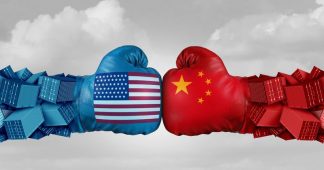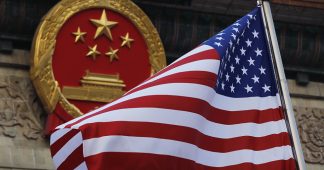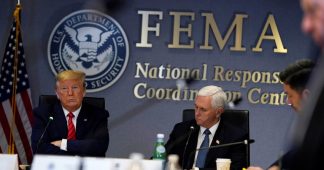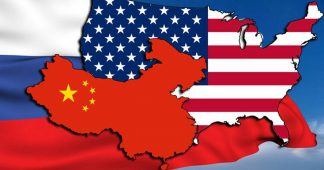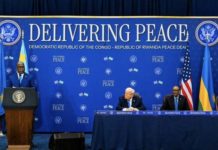Oct 15, 2021
photo: Xinhua
The Bureau of Democracy, Human Rights, and Labor of the U.S. Department of State is implementing “an intricate plan” designed by Washington to smear Chinese businesses in Zimbabwe “through disinformation, lies and sensationalism in the independent media and social platforms.”
That is a plot exposed in an article published on September 21 by Zimbabwe’s largest daily newspaper The Herald, which revealed that the United States is funding and training local reporters to write anti-China stories and discredit Chinese investments.
Following the shocking exposure, Zimbabwean officials, media outlets and citizens have jointly condemned the sinister move by the United States, and voiced support for ties between Zimbabwe and China.
U.S. funding for anti-China reports
In the article, The Herald said it received exclusive details indicating that “private media journalists were being trained by the Information for Development Trust,” a self-proclaimed Zimbabwean independent investigative journalism center, with funding from the U.S. Embassy in Zimbabwe.
Noting that a workshop drawing about a dozen private media journalists was held on September 14-15, the article said the journalists “were allocated regional/geographical areas of focus with emphasis on areas where Chinese businesses are involved,” such as mining, construction, energy, infrastructure, loans and environment.
They were told to portray Chinese companies as “causing harm to communities, environment and workers,” the article noted.
“One attendee at the workshop revealed that journalists involved in the workshop have already been given areas and topics to work on according to areas of interests as well as geographical areas,” it said.
The next phase, according to the revelation, is producing content and publishing stories in various media outlets, with journalists receiving payment of $1,000 per story from the U.S. embassy through its proxy.
“U.S. embassy officials bragged during the workshop that they had… previously sponsored media institutions on the so-called accountability issues,” the article said.
It noted that they also funded some journalists that are now strategically positioned within the independent media, and have been “availing resources to ‘people that matter’ to focus on resource governance and labor issues and providing the ‘right instruments.'”
Besides the U.S. plot, the European Union and some Nordic countries are also sponsoring similar workshops, it added.
Saying no to “dirty money”
In an opinion published on September 24, titled “Never Be Used against China by the United States,” The Herald called on “all right-thinking citizens” to condemn ill attempts to “smear the image of China and its investors in Zimbabwe,” pointing out that such schemes fully reflect the plotters’ “jealousy and chicanery.”
“It is unfortunate that some sections of the media have accepted dirty money to go on this crusade to demonize Chinese companies who are providing employment, livelihoods and paying taxes for the benefit of the nation,” it said.
“Various false claims are made against Chinese companies and nationals without any attempt to validate them or to give audience to the supposed aggressors,” it said, adding that “Western countries want to perpetuate this racist and hateful behaviour in an effort to knock out China from its well-earned place in Zimbabwe.”
“Unlike the boastful U.S., though, China is not interested in dominating the world and would rather belong to a global commonwealth of shared values,” it said.
Published at news.cgtn.com
We remind our readers that publication of articles on our site does not mean that we agree with what is written. Our policy is to publish anything which we consider of interest, so as to assist our readers in forming their opinions. Sometimes we even publish articles with which we totally disagree, since we believe it is important for our readers to be informed on as wide a spectrum of views as possible.


